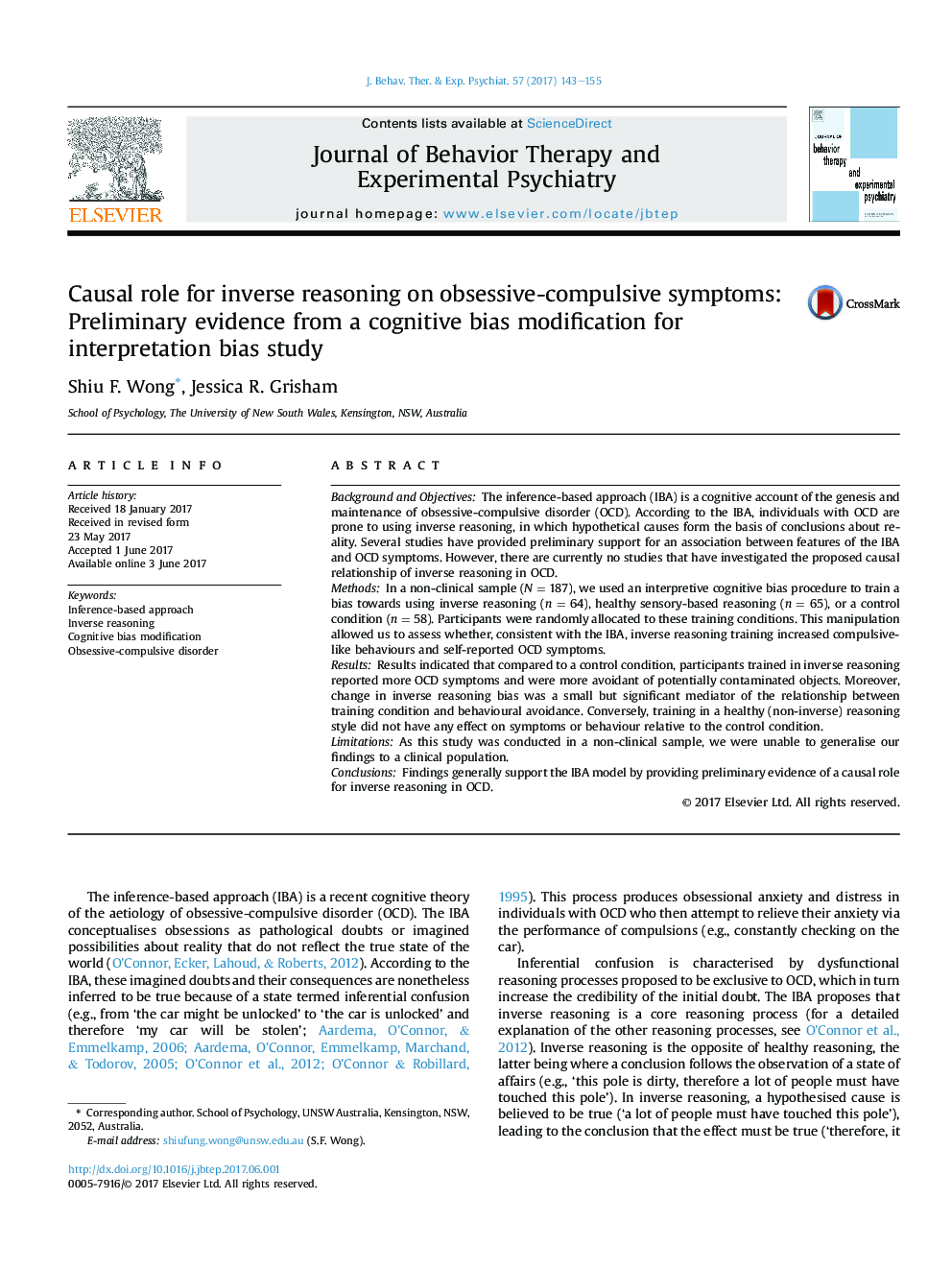| Article ID | Journal | Published Year | Pages | File Type |
|---|---|---|---|---|
| 5039016 | Journal of Behavior Therapy and Experimental Psychiatry | 2017 | 13 Pages |
â¢We experimentally tested the central tenet of the inference-based model of OCD.â¢Inverse reasoning trained using Interpretive Cognitive Bias Modification.â¢Inverse reasoning training increased self-reported OCD symptoms.â¢Inverse reasoning training increased contamination-related avoidance behaviour.â¢Mediation analyses provide support for inverse reasoning causing OCD symptoms.
Background and ObjectivesThe inference-based approach (IBA) is a cognitive account of the genesis and maintenance of obsessive-compulsive disorder (OCD). According to the IBA, individuals with OCD are prone to using inverse reasoning, in which hypothetical causes form the basis of conclusions about reality. Several studies have provided preliminary support for an association between features of the IBA and OCD symptoms. However, there are currently no studies that have investigated the proposed causal relationship of inverse reasoning in OCD.MethodsIn a non-clinical sample (N = 187), we used an interpretive cognitive bias procedure to train a bias towards using inverse reasoning (n = 64), healthy sensory-based reasoning (n = 65), or a control condition (n = 58). Participants were randomly allocated to these training conditions. This manipulation allowed us to assess whether, consistent with the IBA, inverse reasoning training increased compulsive-like behaviours and self-reported OCD symptoms.ResultsResults indicated that compared to a control condition, participants trained in inverse reasoning reported more OCD symptoms and were more avoidant of potentially contaminated objects. Moreover, change in inverse reasoning bias was a small but significant mediator of the relationship between training condition and behavioural avoidance. Conversely, training in a healthy (non-inverse) reasoning style did not have any effect on symptoms or behaviour relative to the control condition.LimitationsAs this study was conducted in a non-clinical sample, we were unable to generalise our findings to a clinical population.ConclusionsFindings generally support the IBA model by providing preliminary evidence of a causal role for inverse reasoning in OCD.
